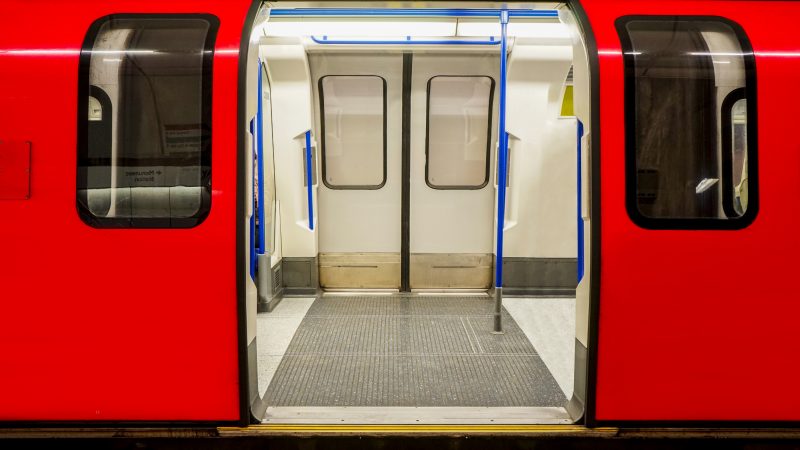
‘A chaotic right-wing premier picks a fight with a regional politician in order to distract from his own failings amid the pandemic.’ If that sounds a depressingly familiar scenario then let us take comfort, now more than ever, from how the story could end – in electoral failure.
Boris Johnson’s attacks on Sadiq Khan’s oversight of the public transport network are straight out of the Donald Trump playbook. Just as the US President waged war on Democratic governors’ handling of coronavirus during his doomed re-election bid, so has the Prime Minister attacked the mayor of London. And just as Trump’s rants against the swing state governors ultimately proved futile, so will Johnson’s own outbursts be viewed as empty and pointless.
What Johnson has done, in fact, is open up a much-needed debate on the funding of Transport for London. Last week, the organisation received a £1.8bn government bail-out in order to keep its services running until March 2021. TfL’s finances have been hammered by the pandemic with revenue dropping by 90%, driven by major hits to fares, advertising and retail units amid lockdown. Without the emergency cash injection, the transport body would have been likely to issue a Section 114 order – the public sector equivalent of bankruptcy.
An opportunist perfectly aware of the balance sheet contortions facing TfL following his own eight years as mayor, Johnson accused Sadiq of “effectively bankrupting” the organisation before the onset of Covid-19. It is a claim so far-fetched that, had it been made elsewhere, Johnson would no doubt have described it as “codswallop” or “nonsense on stilts”. Sadiq settled for something simpler, telling the BBC that his immediate predecessor was a “liar”. The reality is that Sadiq reduced TfL’s deficit prior to the pandemic. And, just like his Tory predecessors as Prime Minister, Johnson has revelled in political attacks on the Labour mayor.
We need to have an honest conversation about how to pay for a vast infrastructure that stretches into the home counties and employs 28,000 people. Coronavirus has required enormous changes to the way we travel, just as it has changed how we work, socialise and exercise. The virus may be with us for some time yet, so the adjustments we have seen this year – from widening pavements to allow for social distancing to fewer services on some routes – could be part of travel through much of the next year.
There has been huge support for these measures. Londoners know the city is changing all the time and transport will evolve each year. Only a few mindless idiots have departed from this mood of consensus, for example in Hackney, where council cabinet member Jon Burke received death threats for his part in rolling out more low-traffic neighbourhoods, which are designed to cut the number of car journeys. While there is widespread support among London residents for a strong public transport body independent from central government, it is my belief that now is the time to rethink how it is operated and funded.
Ten years of Tory austerity have starved TfL of the funding it needs. You can draw a short line from the transport authority’s current challenges back to 2015, when the then Chancellor George Osborne and mayor Johnson cooked up a deal to cut to zero the level of central government funding for its day-to-day running costs.
But look around the world and you can see countless cities in which regional and central government have worked together to deliver better value fares amid first-class infrastructure, whether it is the gilded architecture of Moscow’s 1930s metro or the more modern networks of Seoul and Singapore. As the landscape of the state and economy is redrawn amid the pandemic, it is time to consider a small increase in corporation tax or council tax to provide the funding needed to reform our Victorian-built network. And there is a case for spreading this out as fairly as possible by asking people living in the home counties to pay a little extra as well, because prior to the pandemic they were using TfL services in the hundreds of thousands every week.
The benefits of extra investment would be manifold: reduced car usage, cleaner air, increased productivity from workers in Europe’s financial, legal and creative capital as well as the ripple effect of infrastructure investment. Alongside this package should come increased support for car sharing, safe cycle lanes and walking routes from the suburbs to the centre.
A TfL network that is funded for success rather than set up to fail by central government could prove life-changing for Londoners. The pain of the pandemic has been felt in every community and every sector of the economy. I hope one of the positives will be that we change the way we think about public services and decide once again to provide them with the investment they deserve. Let’s come together and set up TfL for another 150 years of innovation.




More from LabourList
Delivering in Government: your weekly round up of good news Labour stories
‘Forgotten fathers: pipefitters, plumbers and the paternity pay gap’
‘How can Britain build peace for Palestinians without owning its own past?’